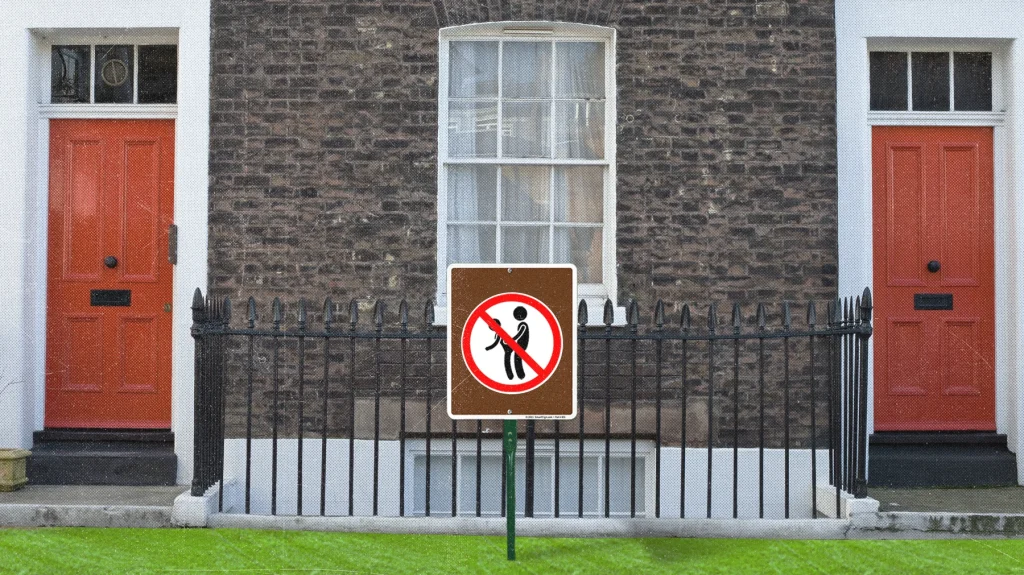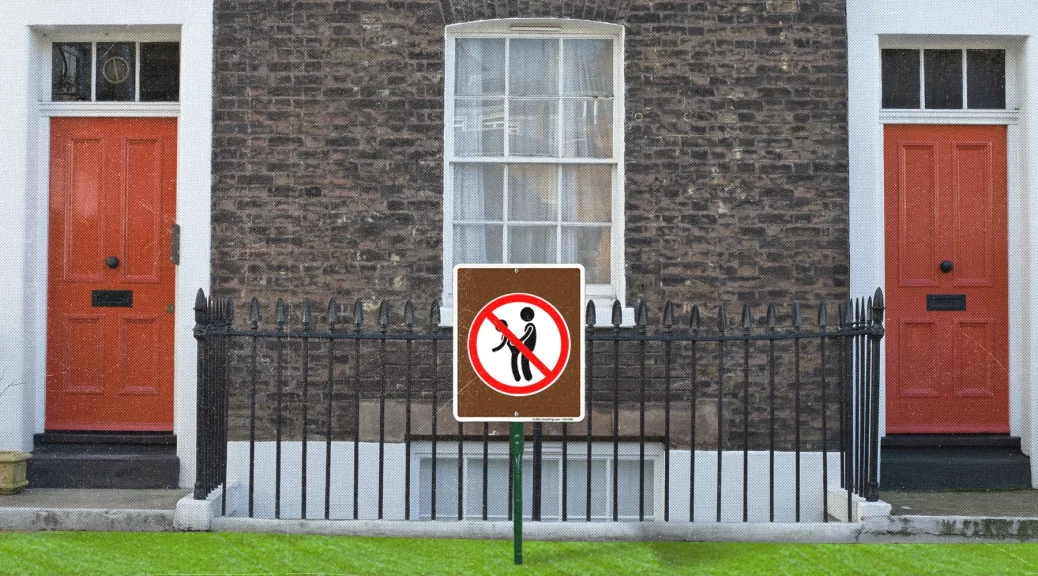In London, the dream of independence for many young renters often collides with the reality of overbearing landlords. Consider Lucy, a 23-year-old who recently made the leap to living on her own in the city. With her own room in a centrally located shared house and seemingly agreeable flatmates, Lucy thought she had found her footing. That is until she encountered a particularly unusual restriction imposed by her landlord: a ban on sex within the premises.
Yes, you read that correctly. Lucy, like others interviewed for this piece, requested anonymity due to privacy concerns. She stumbled upon signs in the communal areas of her new home forbidding various activities, including “loud sex.” It’s a move that even seasoned Brits, accustomed to quirky landlord antics, find rather audacious.
Landlords in London have a track record of pushing boundaries, from disguising single rooms as entire flats to charging tenants for the mere presence of friends. But this latest trend—no-sex clauses in tenancy agreements—is a new low. Lucy initially found it amusing, questioning how such a rule could be enforced. However, her landlord’s insistence on the matter during inspections quickly dispelled any sense of levity.
“It’s creepy,” Lucy remarks, “but with the current housing market, finding a decent place is tough. So, I guess I’ll have to grin and bear it.”
The absurdity doesn’t end there. Some tenants have discovered explicit no-sex clauses embedded within their tenancy agreements. Chris, a 24-year-old attic dweller in London, shares his space with live-in landlords, who also happen to be his flatmates. When his girlfriend’s presence prompted complaints from the landlords, Chris was shocked to find a prohibition on overnight guests buried within his contract. Confronting them only led to a confrontation, leaving Chris feeling trapped by these newfound restrictions.
But how is this legal? In the UK, laws regarding such clauses are murky at best. According to Qarrar Somji, director of Witan Solicitors, tenants like Chris, living with their landlords, have few rights. Even those with separate landlords, like Lucy, find themselves at the mercy of contractual agreements. Apparently, bans on sexual activity somehow pass legal muster, leaving tenants with little recourse.
Enter Nick Ballard, head organizer at ACORN, who sheds light on the broader issue of tenant rights—or lack thereof. He explains that due to no-fault evictions, landlords hold significant power over their tenants’ lives, including their sex lives. This imbalance of power is something Cai, a 33-year-old brand manager, knows all too well. Facing scrutiny and restrictions from two different landlords regarding his sex life, Cai opted to move out rather than endure further interrogation.
Ballard emphasizes tenants’ right to “quiet enjoyment” of their homes, a principle that should extend to their sex lives. Yet, without explicit legal protections, renters remain vulnerable to landlords’ whims. The intertwining of anti-sex sentiment and housing insecurity underscores the need for comprehensive rent reforms.
In a society where landlords wield disproportionate control over their tenants’ personal lives, advocating for renters’ rights becomes imperative. Perhaps it’s time for legislation ensuring a “Right to Shag” alongside broader rent reform initiatives. After all, one’s sex life should never be subject to the scrutiny of a landlord.

Join the waiting list for our newsletter
